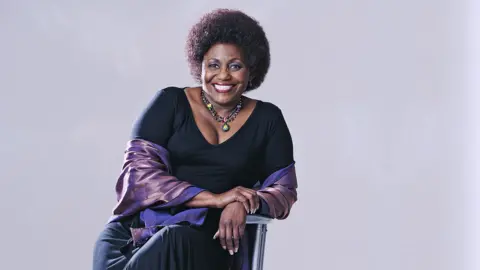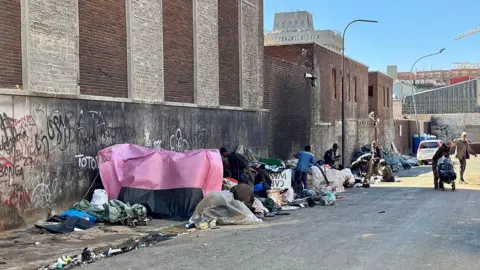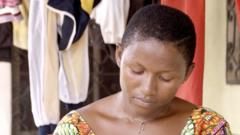The death of a much-loved star is normally followed by an outpouring of grief, but in South Africa, last week’s loss of 75-year-old actress Nandi Nyembe also came with an outpouring of anger.
People were distressed that in the last months of her life, an obviously sick woman was reduced to appearing on videos appealing for financial help.
Sitting in a wheelchair, with thin, grey hair, wearing a loose T-shirt and fleece pyjama trousers, she said she did not like people feeling pity for her, but she needed money to cover the basics. Her biggest plea was for more work so she could support herself.
This was a far cry from her more famous screen appearances.
As the lead in some major television series over recent decades, her face was beamed into the homes of South Africans and she became a familiar weekly presence.
Respectfully known as mam'Nandi, her passing felt like losing a close relative for many.
A tribute jointly released by her family and the government hailed her as the very soul of South African storytelling. She was far more than an actress but also a teacher and guide who broke barriers and inspired young actors in villages and townships to dream beyond their circumstances. Given that status, the way she appeared late in life was all the more shocking.
Nyembe's death has reignited the debate about the lack of support available to South African artists who cannot work, spotlighting the struggles many face behind the scenes.
After an initial appearance fee, actors in South Africa do not get royalties for subsequent broadcasts. Employed as freelancers, they miss out on benefits such as pensions and health coverage available to regular employees.
This means that every single actor who is active in this country right now is on an inevitable path to where mam'Nandi was, said Jack Devnarain, chairperson of the South African Guild of Actors (Saga).
There is no charity that can fix the structural problems within the creative sector, he remarked, lamenting the painful decline he witnessed in Nyembe during her final videos.
Devnarain fondly recalled how welcoming and warm Nyembe had been towards him as a young artist, stating, In mam'Nandi's presence, you knew you were in the presence of performance royalty. She was born in 1950 in Kliptown, Soweto, during the apartheid era. Despite the oppressive conditions, Nyembe fought against typecasting in her early career.
She gained prominence in various television shows and films by the 1990s, playing roles that resonated deeply with South African society, including a female nurse in the HIV drama Soul City and a traditional healer in the Oscar-nominated film Yesterday.
Her grandson, Jabulani Nyembe, remarked on her passion for acting and the impact she had on budding actors.
As the artistic community strives for legislative change to ensure better compensation, the poignant reminder of Nyembe's struggles resonates deeply, urging a re-evaluation of current systems that claim to support the arts in South Africa.
At a memorial service in Johannesburg, actress Lerato Mvelase expressed discontent about the ongoing lack of policy structures to protect artists like Nyembe in life and death. Despite reassurances from Culture Minister Gayton McKenzie of intentions to improve conditions for creatives, the facade of support feels inadequate for those who knew and loved Nyembe.
As Nyembe's passing underscores the precarious nature of artistic careers in South Africa, it also serves as a clarion call for change, reminding all that while talent can shine bright, a sustainable future requires more than passion — it requires systematic support.





















